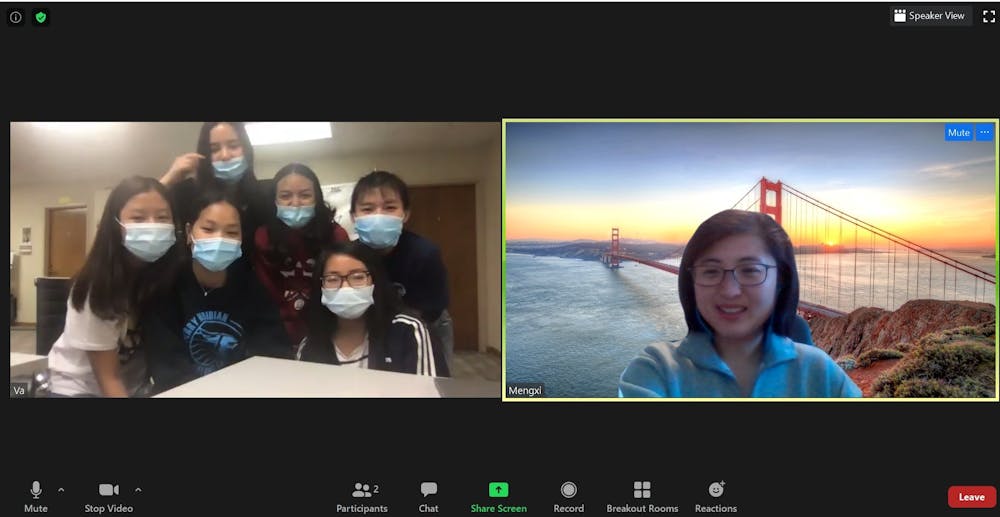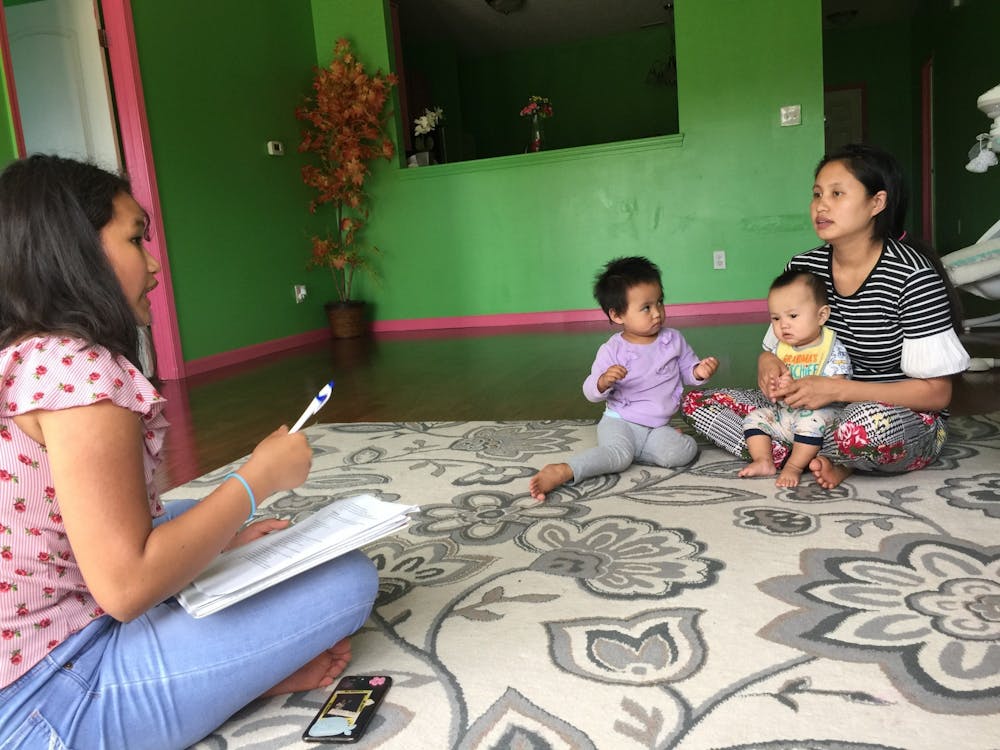Two Ball State professors have created a text-messaging information service for the Burmese refugee population in Indianapolis. The service, which can translate 500 messages into Hakha Chin and Burmese, provides maternal and child health care information.
The project is headed by Jean Marie Place and Mengxi Zhang, two assistant professors of health science at Ball State’s college of health. Place said the idea originated with knowledge that public-communicated text messages have been known to change knowledge and behavior in various populations. It was also recognized by Place that there were problems with transportation and the language barrier that the Burmese population in Indianapolis faced. The professors hatched an idea to use a texting service providing health information.
“We wanted to help address that gap,” Place said. “Using a text messaging system could help bypass the barriers these women faced, especially while pregnant or raising small children.”
Place and Zhang hope that this service will lead to better birth outcomes for Burmese women and their children, as the service provides free information on interconception, prenatal and postpartum health. The service also gives resources in the community that will provide a translation service.
“Although knowledge alone is not the key to changing behavior, it is an important piece,” Place said.

Students from the Burmese community join Ball State professor Mengxi Zhang for a video call. Zhang and professor Jean Marie Place created a text-messaging service for Burmese refugees needing maternal and child health care information. Mengxi Zhang, Photo Provided
Both Place and Zhang have received help from the Burmese American Community Institute to create and develop the project. The institute helped facilitate the research for the project and collect data. Place said that they “were very grateful” for their help.
According to Zhang, data shows there are several problems that the Burmese community face. Aside from issues accessing health care due to the language barrier and transportation, the biggest problems they face are mental health issues and high prevalence of infectious diseases such as tuberculosis.
While the institute helped Place and Zhang with the health and cultural side of the project, both the IU Health School of Medicine and Indiana State Department of Health contributed to the text message aspect of the project. They mainly helped Zhang and Place by providing sample text messages to use as a basis. They also work with healthcare providers in the Burmese community to revise the messages to fit the problems that are affecting them.
“All the interviews were and will be conducted in Burmese and Hakha Chin,” Zhang said.
Both professors believe the messaging service is a way of addressing gaps in the system that affect the disadvantaged refugees. They said it’s important for everyone to understand and research the push and pull factors affecting refugees and forcing them to resettle.
“Hopefully, the message service will inspire greater change for the Burmese refugees,” Place said.
Contact Daniel O’Connell with comments at dcoconnell@bsu.edu or on Twitter at @DanielO89155766.





The Daily News welcomes thoughtful discussion on all of our stories, but please keep comments civil and on-topic. Read our full guidelines here.